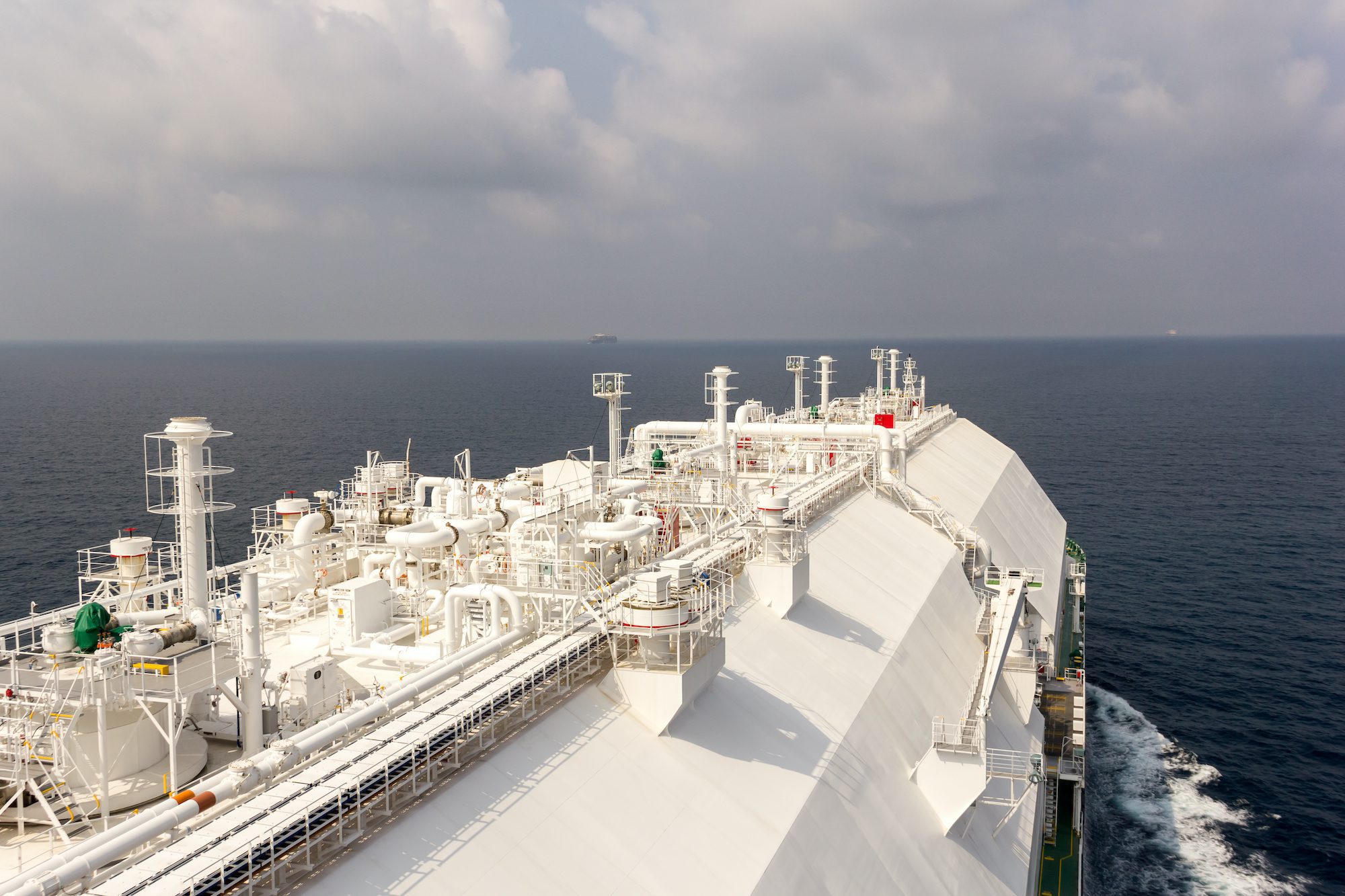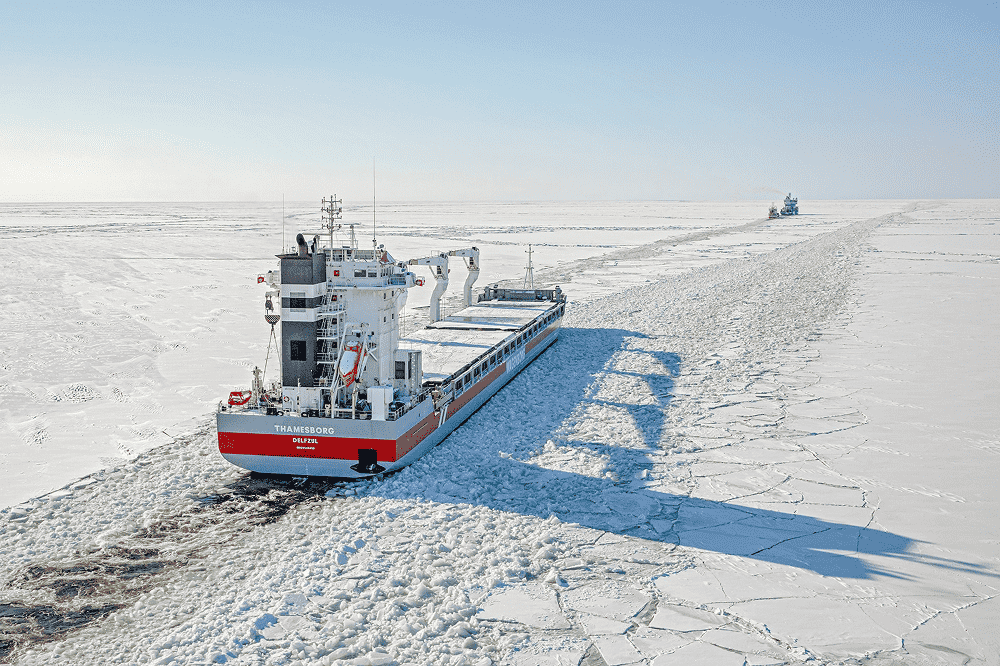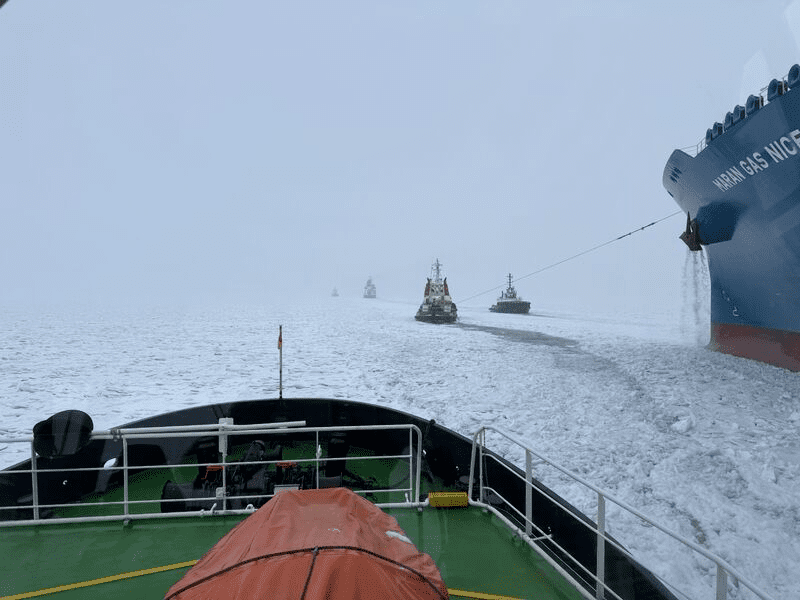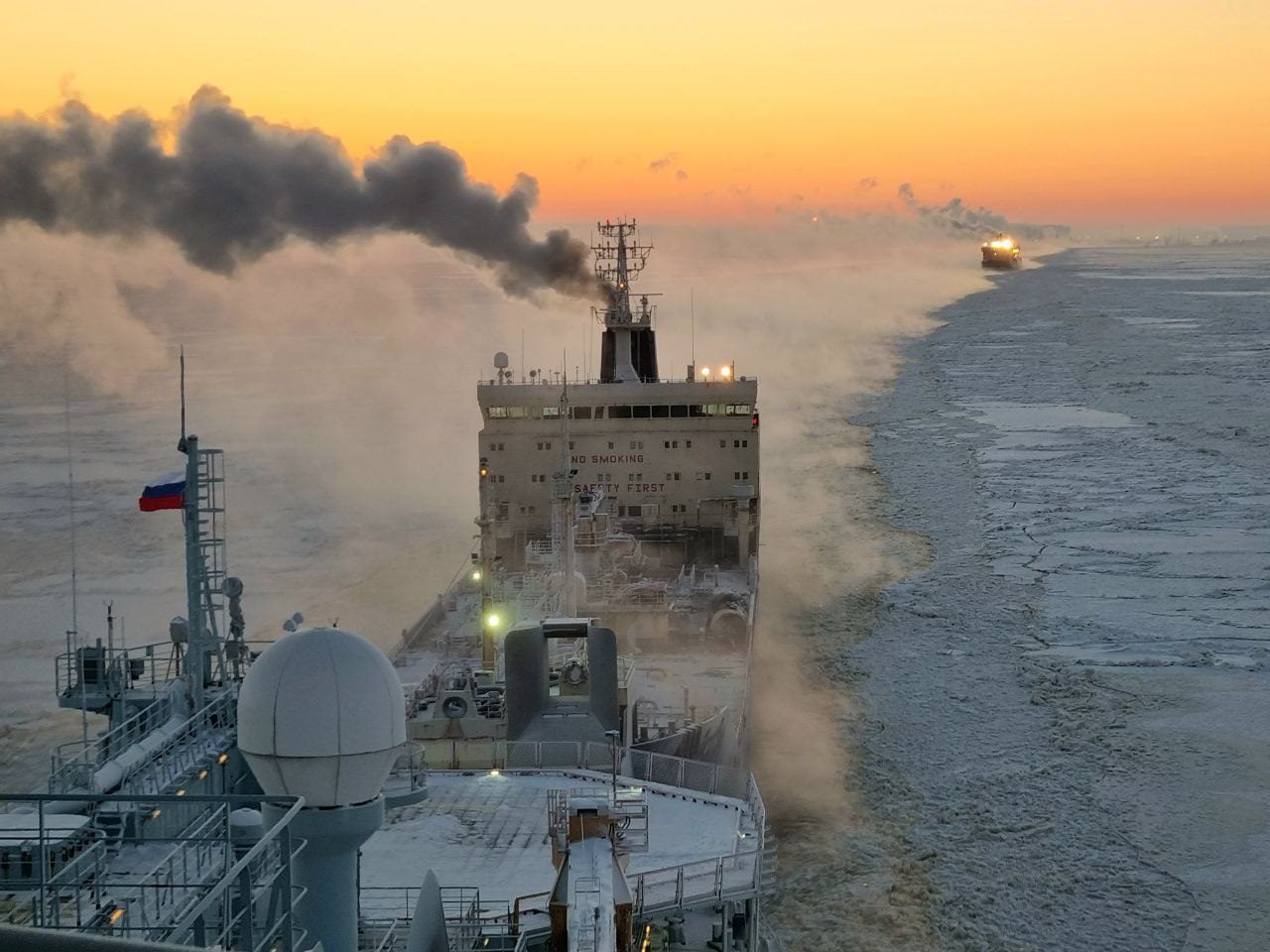By Anna Shiryaevskaya and Stephen Stapczynski (Bloomberg) —
Europe has become a premium market for liquefied natural gas, increasing the likelihood of a supply boost to help get the continent through its winter energy crunch.
In a rare move during peak winter demand, spot liquefied natural gas prices in north Asia slipped below rates on the Dutch Title Transfer Facility hub, Europe’s biggest.
The Japan-Korea-Marker, the spot Asian LNG benchmark, was assessed at $39.021 per million British thermal units on Tuesday, according to S&P Global Platts. The front-month contract on Europe’s benchmark TTF closed at a record high, the equivalent of $42.44 per mmBtu on ICE.
European gas prices are up almost 600% from the start of the year, as inventories have remained slow to build, while top supplier Russia has reduced volumes sent to the region. Geopolitical tensions involving Moscow and its proposed Nord Stream 2 pipeline have further whipsawed the fuel in recent weeks.
By contrast, Asian buyers are seen as better prepared for the winter, having started their LNG purchasing campaign earlier in the year, while mild weather in parts of Asia and the approaching Lunar New Year holiday is curbing gas demand in the region.
“European and Asian markets have somewhat dislocated in recent weeks,” said Luke Cottell, an analyst at S&P Global Platts. “In northeast Asia, spot procurement has been limited due to the combination of a mild start to winter, well stocked LNG storages and high prices destroying some price-sensitive demand in spot-exposed Asian markets, namely China and South Asia importers.”
The European gas premium means that that uncommitted Atlantic Basin LNG cargoes will look to deliver into hard-pressed Europe over the first quarter, “potentially offering some relief to stressed European balances,” he added.
French utility and trader Engie SA offered two cargoes for January delivery to North Asia at discounts to February prices on TTF via the S&P Global Platts market on close.
The impact of Asia, likely temporarily, loosing its hot spot for LNG also spilled into the shipping market. Pacific LNG freight rates posted the biggest one-week drop ever, according to Spark Commodities, which takes assessments from LNG shipbrokers. It’s less profitable to move cargoes between basins without a sizable premium.
The move “reflects the lack of arbitrage which is decreasing shipping demand,” said Tim Mendelssohn, managing director of Spark Commodities.
© 2021 Bloomberg L.P.
Sign up for our newsletter

 Join The Club
Join The Club











